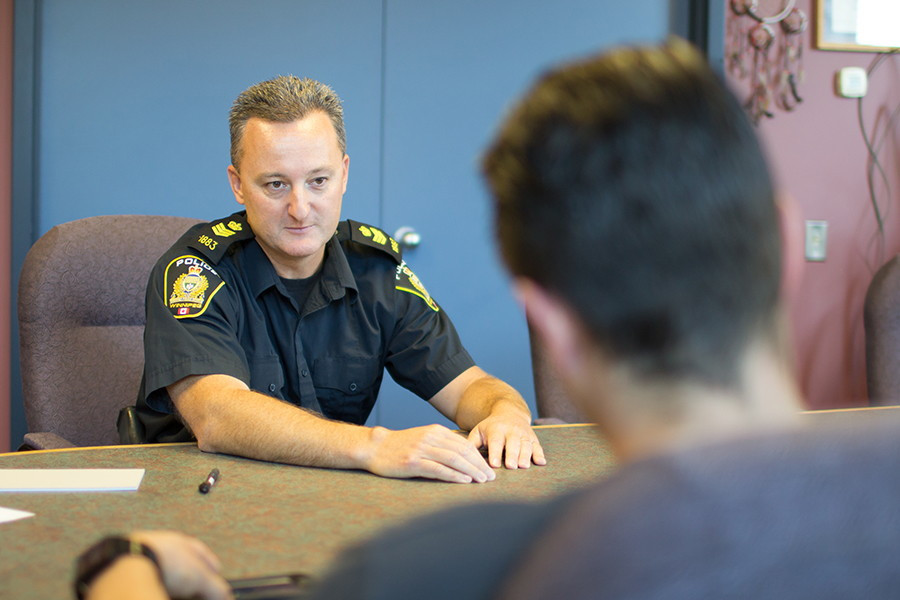Policing through PR
How the Winnipeg Police Service is redefining community relations
While accusations of racism were directed towards the Ferguson Police Department following the shooting of Michael Brown in Ferguson, MI, here at home questions of discrimination in the Winnipeg Police Service (WPS) still exist.
The WPS is comprised of primarily Caucasian officers at 83 per cent of the force. There are 148 officers who identify as Aboriginal - just 11 per cent of the force. In comparison, the National Household Survey says Winnipeg’s aboriginal population is 3.6 per cent and growing.
James Jewell, a former member of the WPS Homicide Unit, wrote in 2012 about a “common belief in the aboriginal community that racism in the Winnipeg Police Service contributes to the marginalization of aboriginal murder victims and an inferior investigative effort. In plain English: ‘the cops don't care when Indians get murdered.’”
However, when Chief of Police Devon Clunis took his oath of office in Nov. 2012 he envisioned a new model of policing that would focus on community outreach, social change and perhaps change that belief.
“We’re doing all that we can in terms of police service, but I really believe we need to look at the greater social issues which are impacting our city,” Clunis stated in a 2013 speech.
It’s well-known that Clunis worked as police chaplain and was a member of the WPS Community Relations Unit prior to becoming chief; part of his progressive philosophy may have been drawn from this experience.
The Community Relations Unit is part of the changing face of community-police cooperation in Winnipeg. It‘s designed to interact on a meaningful level with citizens through participation at events and cultural organizations.
“I think the police service in general is doing much better than law enforcement ever has before in terms of developing good relations with our community stakeholders,” Sgt. Ben Haegeman, head of community engagement, says.
Haegeman has spent most of his career in the investigative sections of the WPS. He was recently involved with Project Devote, the joint RCMP-WPS task force on murdered and missing women. But as head of community engagement he is refocusing police efforts in the community under Clunis’ watch.
“I think the service and the chief has demonstrated a commitment to that [model], both in terms of cost, and getting those officers out into the community,” Haegeman says.
The Community Relations Unit has attended over 700 events this calendar year with a staff of just 15 officers.
Most of these events fall outside of regular work hours.
“Policing is so expensive,” Haegeman says. “These are overtime hours, so we’re not just paying lip service to these events. Our officers are passionate about their community.”
Every year the unit hosts a spring feast at the Indian and Métis Friendship Centre of Winnipeg. The event is a positive point of contact between the WPS and the aboriginal community.
“We’re getting reports saying, ‘We thank you for being here, we thank you for your support.’”
Published in Volume 69, Number 1 of The Uniter (September 3, 2014)








